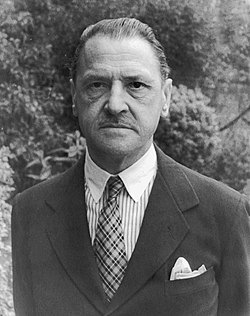W. Somerset Maugham Quote
Most of these stories are on the tragic side. But the reader must not suppose that the incidents I have narrated were of common occurrence. The vast majority of these people, government servants, planters, and traders, who spent their working lives in Malaya were ordinary people ordinarily satisfied with their station in life. They did the jobs they were paid to do more or less competently,. They were as happy with their wives as are most married couples. They led humdrum lives and did very much the same things every day. Sometimes by way of a change they got a little shooting; but at a rule, after they had done their day's work, they played tennis if there were people to play with, went to the club at sundown if there was a club in the vicinity, drank in moderation, and played bridge. They had their little tiffs, their little jealousies, their little flirtations, their little celebrations. They were good, decent, normal people.I respect, and even admire, such people, but they are not the sort of people I can write stories about. I write stories about people who have some singularity of character which suggests to me that they may be capable of behaving in such a way as to give me an idea that I can make use of, or about people who by some accident or another, accident of temperament, accident of environment, have been involved in unusual contingencies. But, I repeat, they are the exception.
Most of these stories are on the tragic side. But the reader must not suppose that the incidents I have narrated were of common occurrence. The vast majority of these people, government servants, planters, and traders, who spent their working lives in Malaya were ordinary people ordinarily satisfied with their station in life. They did the jobs they were paid to do more or less competently,. They were as happy with their wives as are most married couples. They led humdrum lives and did very much the same things every day. Sometimes by way of a change they got a little shooting; but at a rule, after they had done their day's work, they played tennis if there were people to play with, went to the club at sundown if there was a club in the vicinity, drank in moderation, and played bridge. They had their little tiffs, their little jealousies, their little flirtations, their little celebrations. They were good, decent, normal people.I respect, and even admire, such people, but they are not the sort of people I can write stories about. I write stories about people who have some singularity of character which suggests to me that they may be capable of behaving in such a way as to give me an idea that I can make use of, or about people who by some accident or another, accident of temperament, accident of environment, have been involved in unusual contingencies. But, I repeat, they are the exception.
Related Quotes
About W. Somerset Maugham
Maugham's novels after Liza of Lambeth include Of Human Bondage (1915), The Moon and Sixpence (1919), The Painted Veil (1925), Cakes and Ale (1930) and The Razor's Edge (1944). His short stories were published in collections such as The Casuarina Tree (1926) and The Mixture as Before (1940); many of them have been adapted for radio, cinema and television. His great popularity and prodigious sales provoked adverse reactions from highbrow critics, many of whom sought to belittle him as merely competent. More recent assessments generally rank Of Human Bondage – a book with a large autobiographical element – as a masterpiece, and his short stories are widely held in high critical regard. Maugham's plain prose style became known for its lucidity, but his reliance on clichés attracted adverse critical comment.
During the First World War Maugham worked for the British Secret Service, later drawing on his experiences for stories published in the 1920s. Although primarily homosexual, he attempted to conform to some extent with the norms of his day. After a three-year affair with Syrie Wellcome which produced their daughter, Liza, they married in 1917. The marriage lasted for twelve years, but before, during and after it, Maugham's principal partner was a younger man, Gerald Haxton. Together they made extended visits to Asia, the South Seas and other destinations; Maugham gathered material for his fiction wherever they went. They lived together in the French Riviera, where Maugham entertained lavishly. After Haxton's death in 1944, Alan Searle became Maugham's secretary-companion for the rest of the author's life. Maugham gave up writing novels shortly after the Second World War, and his last years were marred by senility. He died at the age of 91.
